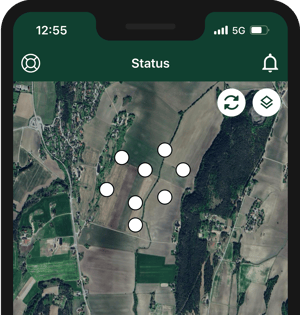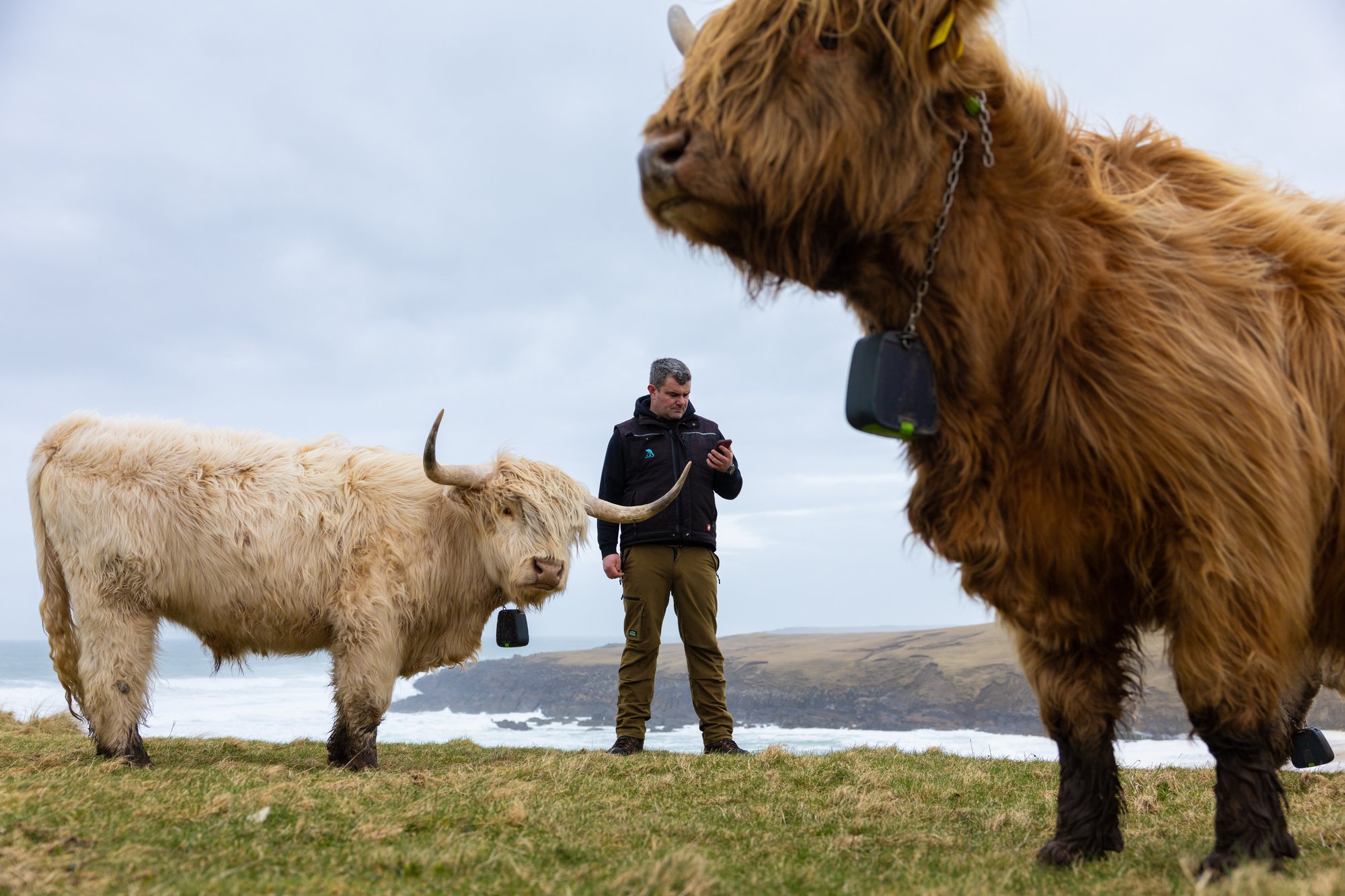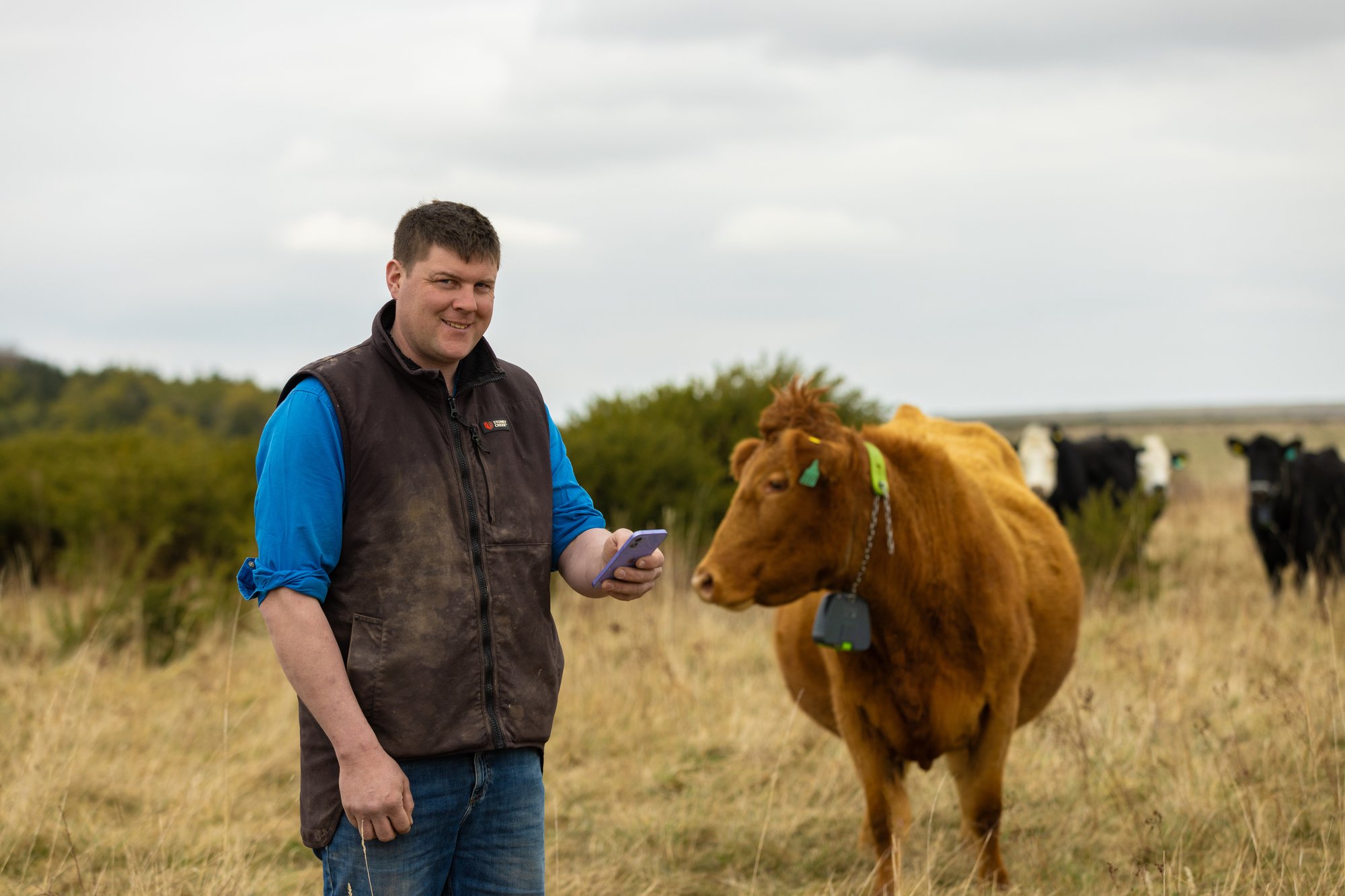
Maximizing grazing flexibility on Scottish Highlands
David Girvan farms in the Scottish Highlands, where Nofence helps him graze more efficiently across vast, unfenced hill ground and nature reserves. As he transitions to organic farming, virtual fencing supports his goals of lowering inputs, improving animal welfare, and protecting sensitive habitats.
David Girvan manages a family-run farm located in Inverness, in the northeast of Scotland. Their 8,000-acre farm, composed of largely unproductive hill ground with some high-quality pasture, is home to 150 Stabiliser cattle. As he moves towards organic farming, David has been exploring ways to reduce input costs, particularly feed and fertilisers, while optimising grazing on challenging terrain.
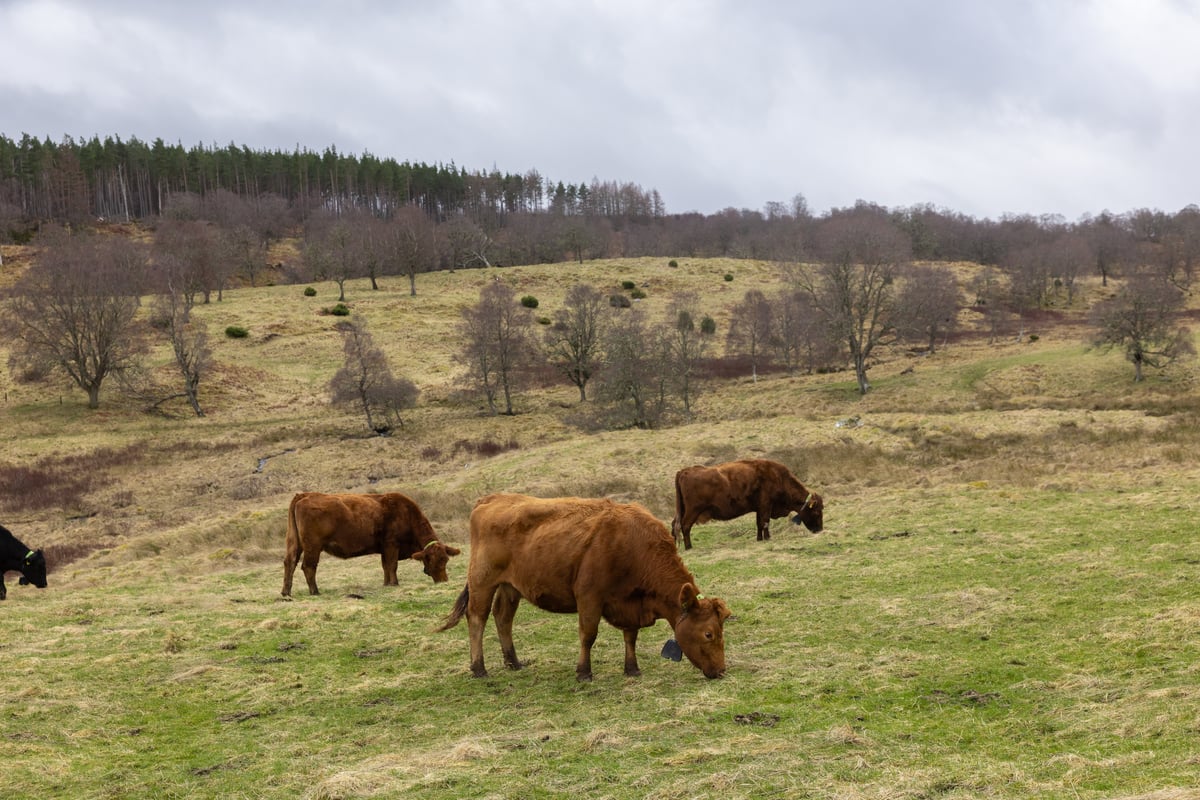
“We can have them graze in smaller areas and keep them moving.”
— David Girvan
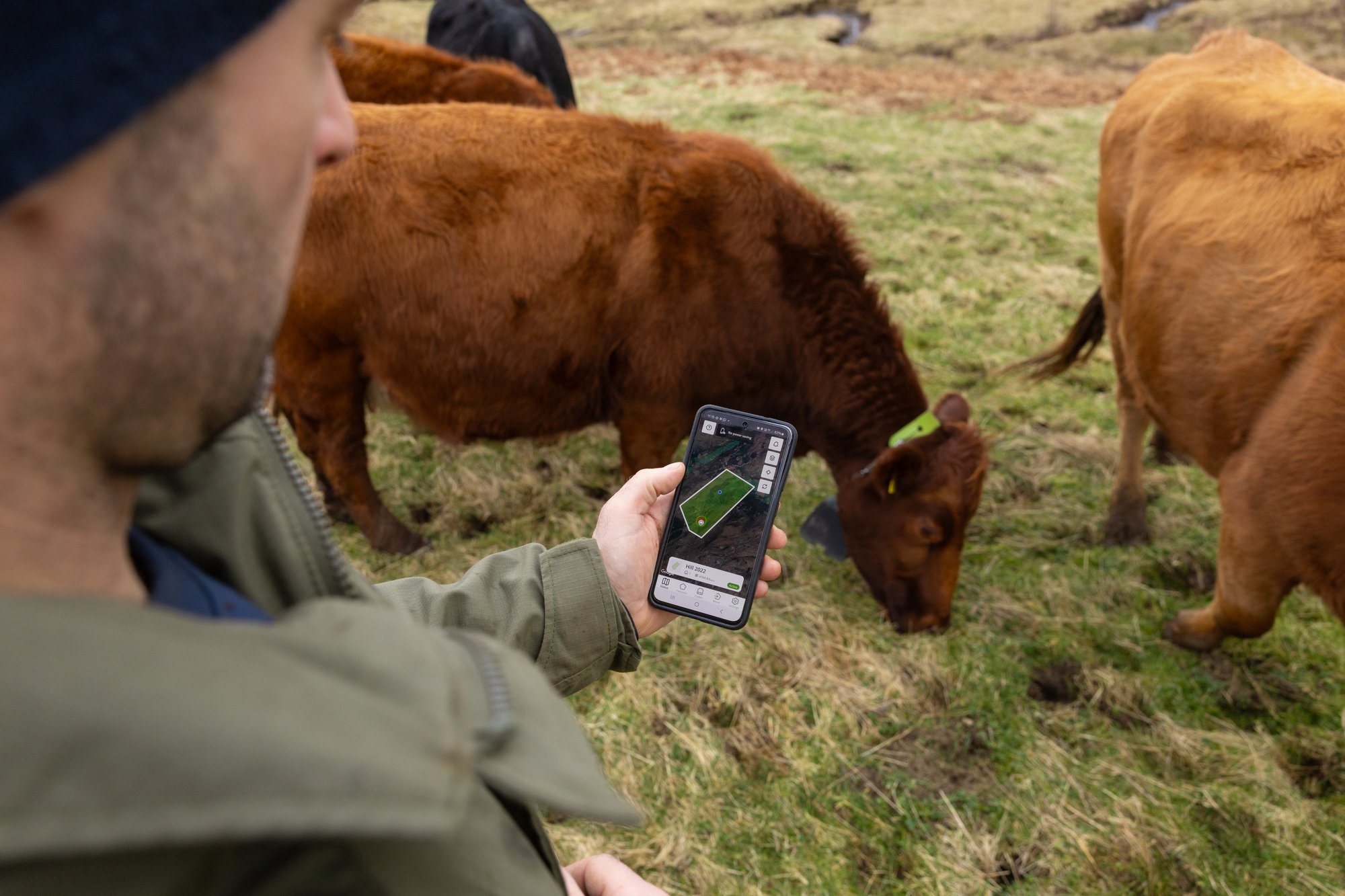
Reducing fencing costs on a nature reserve
David initially introduced Nofence's virtual fencing system to manage cattle on a nearby nature reserve, where conventional fencing is discouraged due to bird strike risks. The flexibility of Nofence technology allowed David to graze his herd without the environmental and financial costs of installing and maintaining physical fences on the reserve. “It’s quite expensive to be putting fences up for every year,” David explained, noting that the reserve is grazed only once every few years, making permanent fences impractical.
Nofence’s technology has enabled targeted grazing in sensitive areas. “We can have them graze in smaller areas and keep them moving,” David said, explaining how virtual boundaries allow him to manage grazing more efficiently, even in remote locations with limited access to water. “It means we can move them to areas where they can graze closest to water sources in the summer, which wouldn’t have been possible before.”
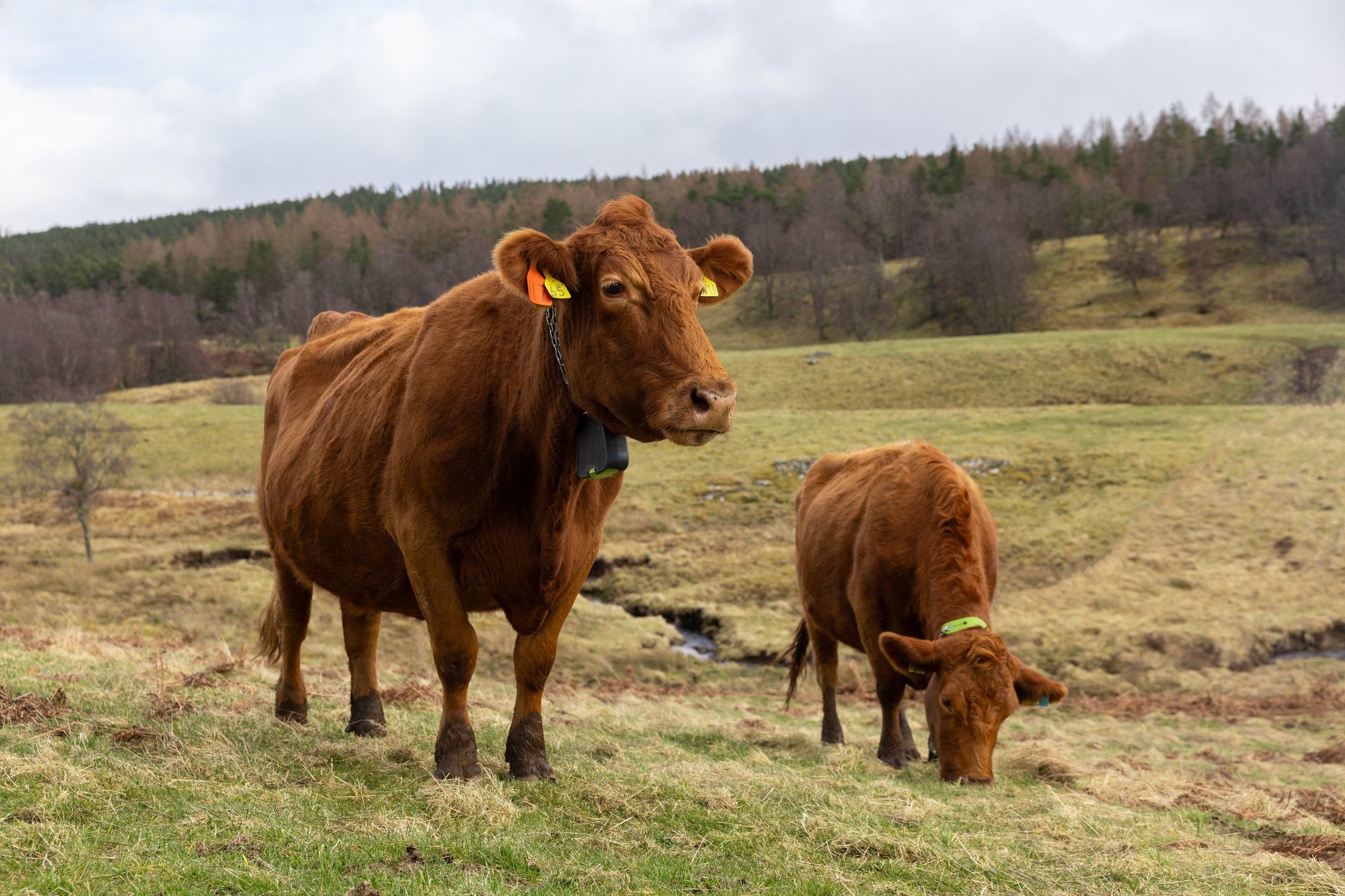
“It's easier to keep them in designated spots, moving them around without physical boundaries.”
— David Girvan
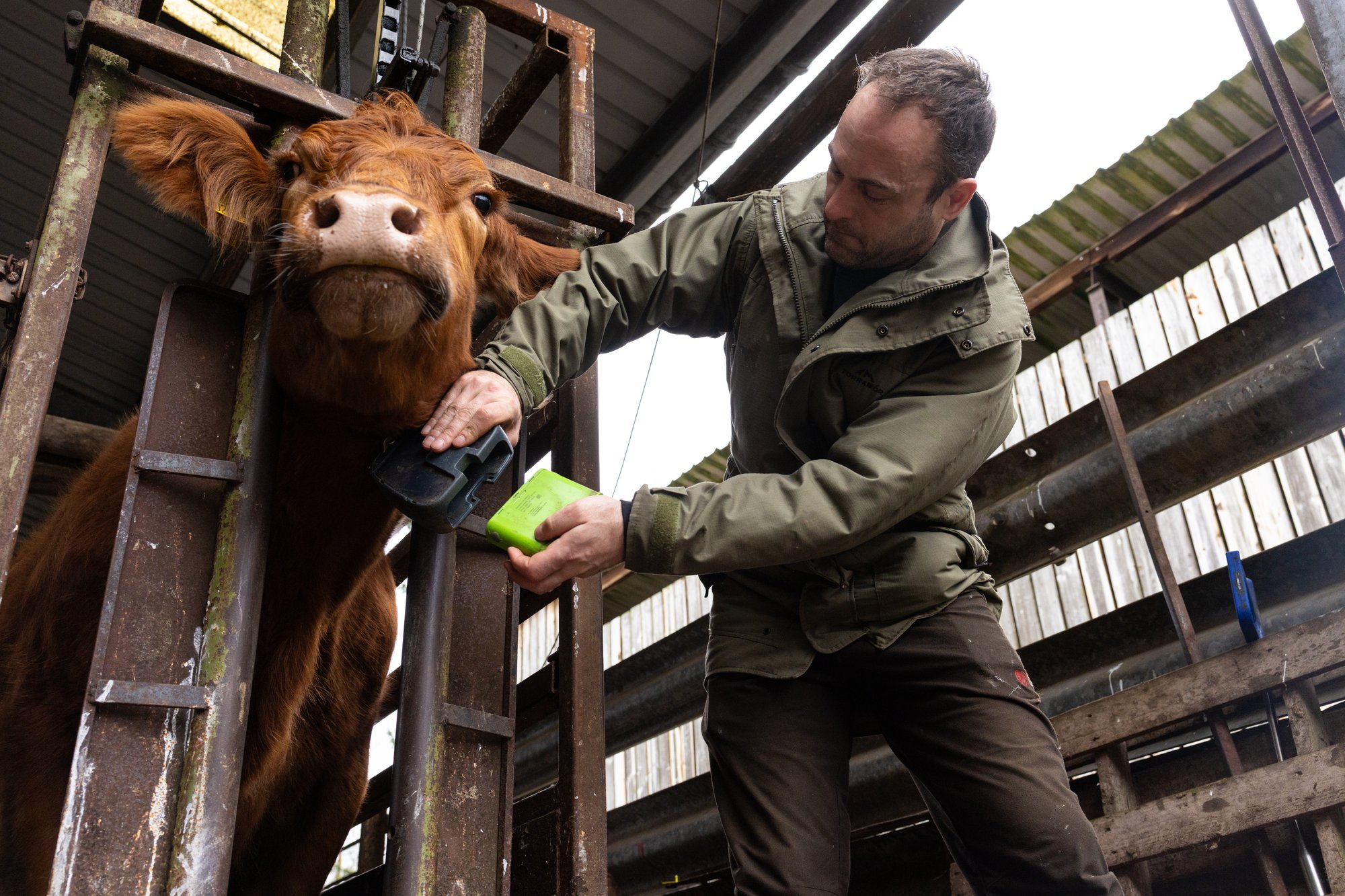
Managing unfenced hill grazing
Without traditional fences separating his land from neighboring farms, managing grazing on the hill could have been a logistical challenge. Thanks to Nofence, David can direct his cattle to graze specific areas without worrying about them straying. "It’s easier to keep them in designated spots, moving them around without physical boundaries," David said, highlighting how virtual fencing prevents the herd from returning to overgrazed areas or heading towards neighbouring farms.
Additionally, locating the herd has become simpler. “It’s easier to find them. We just go straight to where they are,” David explains. Before using Nofence, finding the cattle on the hill could take up significant time, especially in stormy weather. Now, David can easily track the herd’s location for daily feeding, even in larger areas of rough ground.
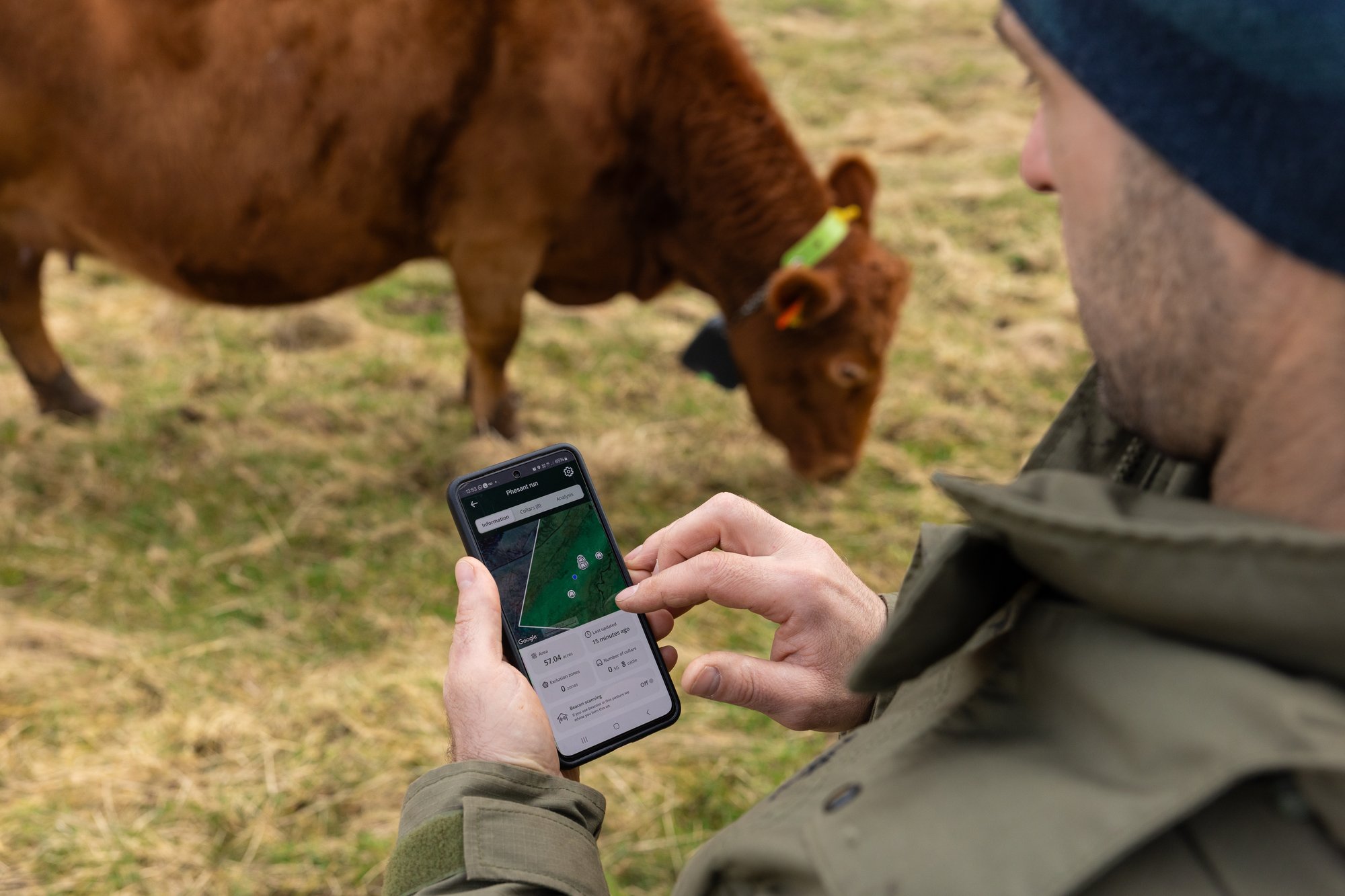
“Instead of leaving the cattle in one area for a month, we can move them every few days.”
— David Girvan
Improved grazing management for healthier cattle
David has seen significant improvements in how he manages grazing throughout the year, particularly during the end of the grazing season. Using Nofence, he can move the herd more frequently, preventing overgrazing and ensuring a balanced diet.
“Instead of leaving the cattle in one area for a month, we can move them every few days,” David says. This more intensive grazing strategy has not only benefited the land but also the cattle’s health. “The cattle don’t spend too long in one area, so they’re always getting the right balance of nutrition. It’s a lot better than having them graze all the good parts in the first week and then struggle for the rest of the month.”
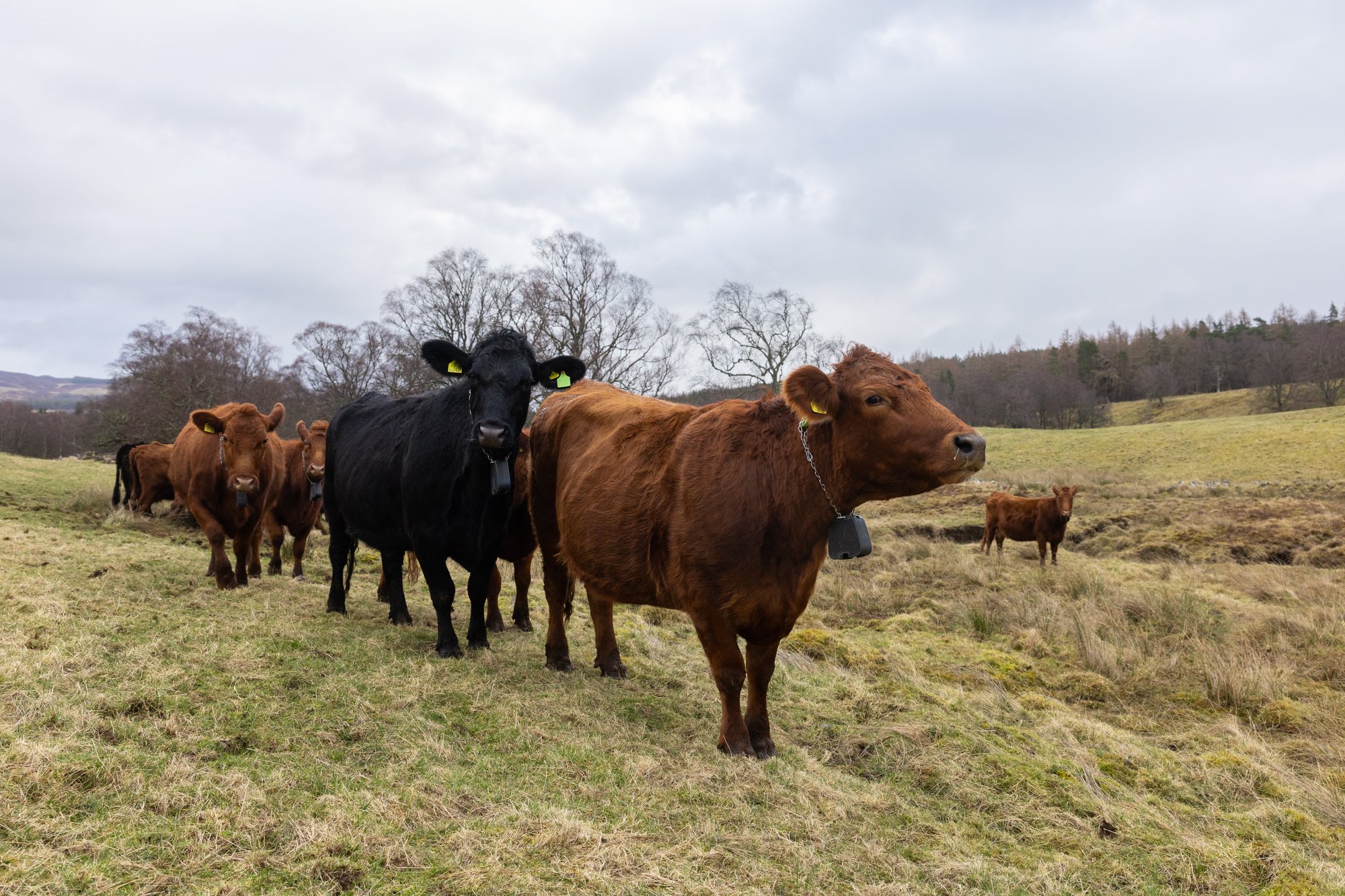
The technology in practice
When discussing Nofence with peers, David emphasizes that the technology “works as advertised.” He admits that he was initially skeptical that such an innovative concept would work, but over time, he’s seen firsthand how reliable the collars are. Training the cattle to use the system takes some patience, but David recommends allowing a couple of weeks to ensure they become accustomed to the collars.
The ability to monitor the herd through the app has also provided peace of mind. David’s father and the nature reserve ranger both have access to the app, allowing them to make real-time adjustments to grazing areas. This collaboration means David can confidently leave the farm, knowing the herd is in good hands.
Organic farming and sustainable grazing
As David continues his journey toward organic farming, Nofence remains a key part of his strategy to reduce inputs and improve grazing efficiency. The ability to rotate his herd across large, unfenced areas without the need for traditional barriers offers significant environmental benefits. "We can graze more intensively without damaging the land," David says, reflecting on the long-term value of virtual fencing in promoting sustainable farming practices.
Isle of Lewis crofter transforming grazing management
Isle of Lewis crofter transforming grazing management
Donald MacSween, a crofter based in the picturesque Isle of Lewis, Scotland, is redefining agricultural practices on his croft. With a background in conservation and a passion for sustainable farming, Donald has found a powerful ally in Nofence’s virtual fencing technology.
Grazing smarter on Salisbury Plain
Grazing smarter on Salisbury Plain
Will Oberton and Erin Gervais are leading the way in sustainable farming. With a focus on regenerative agriculture they show that even the toughest land can thrive when innovation meets determination.
Isle of Lewis crofter transforming grazing management
Isle of Lewis crofter transforming grazing management
Donald MacSween, a crofter based in the picturesque Isle of Lewis, Scotland, is redefining agricultural practices on his croft. With a background in conservation and a passion for sustainable farming, Donald has found a powerful ally in Nofence’s virtual fencing technology.
Grazing smarter on Salisbury Plain
Grazing smarter on Salisbury Plain
Will Oberton and Erin Gervais are leading the way in sustainable farming. With a focus on regenerative agriculture they show that even the toughest land can thrive when innovation meets determination.
Ready to transform your livestock management?
We have collars in stock for both cattle and small ruminants.
